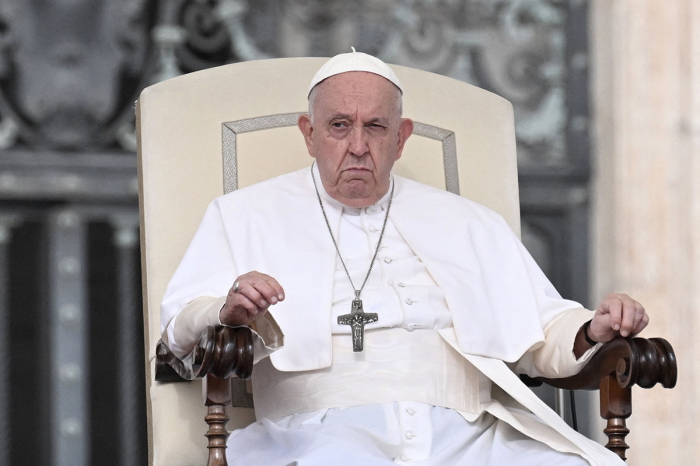Vatican says trans people can be baptized, serve as godparents 'under certain conditions'

The Vatican's doctrinal office issued a document earlier this week explaining that trans-identified individuals can be baptized and serve as godparents in some circumstances.
The three-page document, which was approved by Pope Francis on Oct. 31 and posted online in Portuguese and Italian on Wednesday, came in response to Brazilian Bishop Jose Negri's request for clarity from the Dicastery for the Doctrine of the Faith in July regarding the role of LGBT people in baptism and matrimony.
The guidance, which was signed by Cardinal Victor Manuel Fernandéz, stipulated that people who have undergone transgender surgical procedures or taken cross-sex hormones can be baptized provided "there are no situations in which there is a risk of generating public scandal or disorientation among the faithful."
Citing the Catechism of the Catholic Church, the document notes that when baptism "is received without repentance for grave sins, the subject does not receive sanctifying grace, although they do receive the sacramental character," according to a translation of the document by the Vatican News.
The document also states that the children of homosexual couples — even if they are conceived via surrogacy — can be baptized if there is "a well-founded hope that he or she will be brought up in the Catholic religion."
Regarding whether a trans-identified person can serve as the godparent of a baptized child, the guidance stressed it "can be allowed under certain conditions" but added that being a godparent is not a right and that "pastoral prudence demands that it should not be allowed if there is a danger of scandal, undue legitimization, or confusion in the educational sphere of the ecclesial community."
On the issue of whether a homosexual or cohabiting person can serve as the godparent of a baptized child, the guidance states that the individual should be living "a life in conformity with the faith and the task he or she assumes."
According to the Vatican, nothing "in current universal canonical legislation" barring trans-identified individuals from serving as a witness to a marriage, and that such is therefore allowed.
Nicholas P. Cafardi, who serves as a canon lawyer in Pennsylvania, told The New York Times that the document indicates "no doctrinal changes" but that it is "typical of Francis's whole papacy — namely, it takes a very pastoral approach to some very thorny issues of the church today."
Father Brian Graebe, a priest with the Archdiocese of New York, echoed Cafardi when he told Fox News Digital that there is "nothing in the document that contradicts church teachings," though he expressed concern that it is "deficient."
"The problem isn't so much in what it says as in what it leaves unsaid," Graebe said, expressing his disappointment the document didn't affirm that correct biological pronouns should be used during the baptismal sacrament.
Pope Francis has been critical of transgender ideology, condemning it during an interview with La Nacion in March as "one of the most dangerous ideological colonizations."
He noted at the time that no one had yet requested him to pen a document clarifying the Catholic Church's teachings on gender but suggested that there is a difference between endorsing LGBT ideology and being compassionate toward people who struggle with sexuality or gender.
"I always distinguish between what pastoral care is for people who have a different sexual orientation and what gender ideology is," he said. "They are two different things. Gender ideology, at this time, is one of the most dangerous ideological colonizations."




























